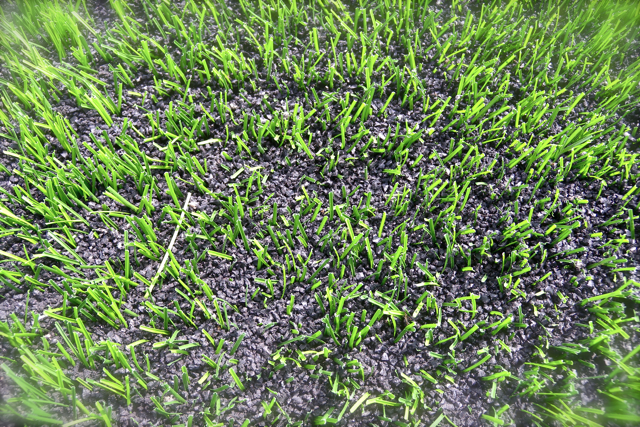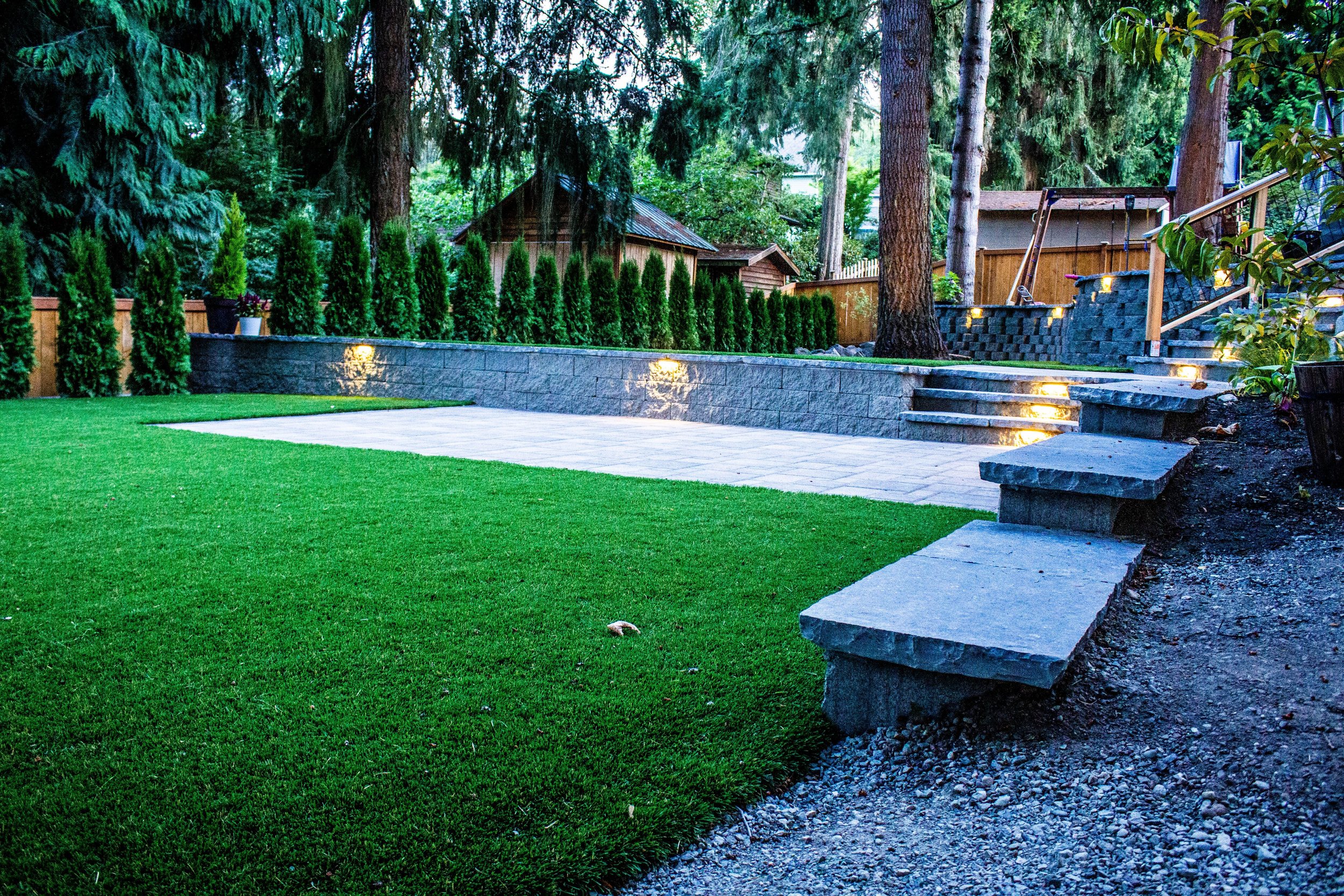Explore the Environmental Perks of Opting for Synthetic Grass Solutions
The adoption of fabricated turf options provides a compelling opportunity to deal with pushing ecological obstacles. By dramatically reducing water usage and lessening the application of unsafe chemicals, these choices not only advertise lasting landscaping however also shield local environments.
Water Preservation Perks
Among the most considerable benefits of fabricated turf is its capacity to preserve water. Traditional grass lawns require considerable irrigation, especially in areas susceptible to dry spell or water limitations. In comparison, synthetic grass does not require watering, considerably reducing the total need for water sources. This function is especially beneficial in dry regions where water shortage is a pushing concern.
By getting rid of the demand for normal watering, synthetic grass contributes to sustainable landscape techniques and aids mitigate the ecological impact of excessive water intake. In addition, the conservation of water expands to the decrease of runoff, which can lead to soil erosion and waterway pollution.
In addition, the installation of fabricated turf allows communities and home owners to allot water sources extra successfully, focusing on vital usages such as drinking water and agriculture. The change in the direction of man-made lawn not just advertises accountable water use however additionally aligns with more comprehensive ecological goals focused on maintaining natural resources.
As neighborhoods increasingly focus on sustainability, the water preservation benefits of synthetic grass present an engaging case for its fostering in residential and industrial landscaping projects.
Lowered Chemical Use
The transition to synthetic grass significantly lowers the dependence on chemical therapies commonly utilized in all-natural turf upkeep. Standard grass monitoring normally entails the application of plant foods, chemicals, and herbicides to advertise development and control bugs. These chemicals can pose dangers to human wellness, local wildlife, and the setting, adding to dirt and water contamination.
In contrast, man-made turf gets rid of the requirement for these harmful compounds. By decreasing the release of artificial substances right into the community, synthetic lawn advertises healthier soil and water systems.
Additionally, the absence of chemical drainage related to synthetic grass setups aids safeguard regional rivers from contamination, supporting water life and maintaining biodiversity. Arizona artificial turf. As communities progressively prioritize sustainable practices, choosing for synthetic grass presents a practical option that lines up with ecological conservation objectives. Through this change, home owners can delight in lush eco-friendly spaces without endangering environmental health, leading the way for an extra lasting future
Lower Carbon Footprint

Furthermore, the installment of synthetic turf can result in significant water preservation. All-natural yards need considerable quantities of water for irrigation, which not just includes to the carbon impact linked pop over to this site with water removal and therapy yet likewise strains local water resources. In comparison, synthetic grass requires marginal upkeep, needing no watering, consequently considerably decreasing water usage and its linked power costs.
Additionally, the durability of synthetic grass contributes to its reduced carbon impact. With a life-span of approximately 15 years or more, the need for regular substitutes is diminished, causing much less waste and reduced energy usage in production and throwing away conventional lawn choices. Overall, synthetic grass offers a sustainable alternative for ecologically conscious landscaping.
Habitat Conservation
Environment conservation is a critical consideration in the argument over landscape design selections, specifically when comparing fabricated turf to all-natural yard. All-natural yard lawns frequently need comprehensive upkeep, consisting of making use of pesticides, fertilizers, and herbicides, which can negatively affect neighborhood communities. These chemicals can leach into the dirt and rivers, harming indigenous plants and fauna and interfering with regional environments.
Fabricated grass removes the demand for dangerous chemicals, thereby shielding close-by wildlife and maintaining the integrity of bordering communities. The setup of man-made grass can lead to the conversion of previous turf areas into even more biodiverse landscapes, such as pollinator yards or native plant areas, which can sustain neighborhood wildlife.
Inevitably, the transition to synthetic grass not only preserves water and minimizes maintenance efforts yet additionally fosters a more unified connection between human tasks and the native environment, promoting environment preservation at the same time.
Long-Term Sustainability
Long-lasting sustainability is an essential consider evaluating the advantages of synthetic grass over traditional turf lawns. One of the most considerable benefits of artificial turf is its resilience; it can last approximately 15-20 years with minimal upkeep, whereas all-natural yard calls for regular reseeding and substitute. This longevity decreases the requirement for continuous sources, such as water, fertilizers, and chemicals, which are crucial for keeping a healthy and balanced turf yard.
Furthermore, synthetic grass adds to More Bonuses a reduction in carbon discharges associated with lawn care tools. Conventional grass usually need gas-powered lawn mowers, trimmers, and blowers, every one of which add to air pollution. Arizona artificial turf. On the other hand, synthetic grass gets rid of the requirement for such tools, advertising a cleaner setting
Furthermore, the manufacturing of synthetic grass significantly uses recycled materials, boosting its sustainability account. As suppliers take on green methods, the ecological impact of synthetic grass remains to diminish.

Conclusion
The adoption of synthetic grass remedies provides considerable ecological advantages, including substantial water preservation, lowered reliance on dangerous chemicals, and Home Page a lower carbon impact. In addition, artificial lawn help in protecting all-natural environments by lessening land disruption and advertising long-term sustainability through using long lasting materials. Collectively, these variables underscore the potential of synthetic grass to contribute positively to ecological wellness and use a sensible option to conventional landscape design techniques in a progressively resource-conscious globe.
In comparison, man-made turf does not need watering, substantially reducing the general demand for water sources. By decreasing the launch of artificial substances right into the ecological community, fabricated grass promotes much healthier soil and water systems.
Additionally, the installment of fabricated grass can result in considerable water conservation. In contrast, synthetic grass needs very little upkeep, requiring no watering, consequently substantially minimizing water use and its connected energy costs.
